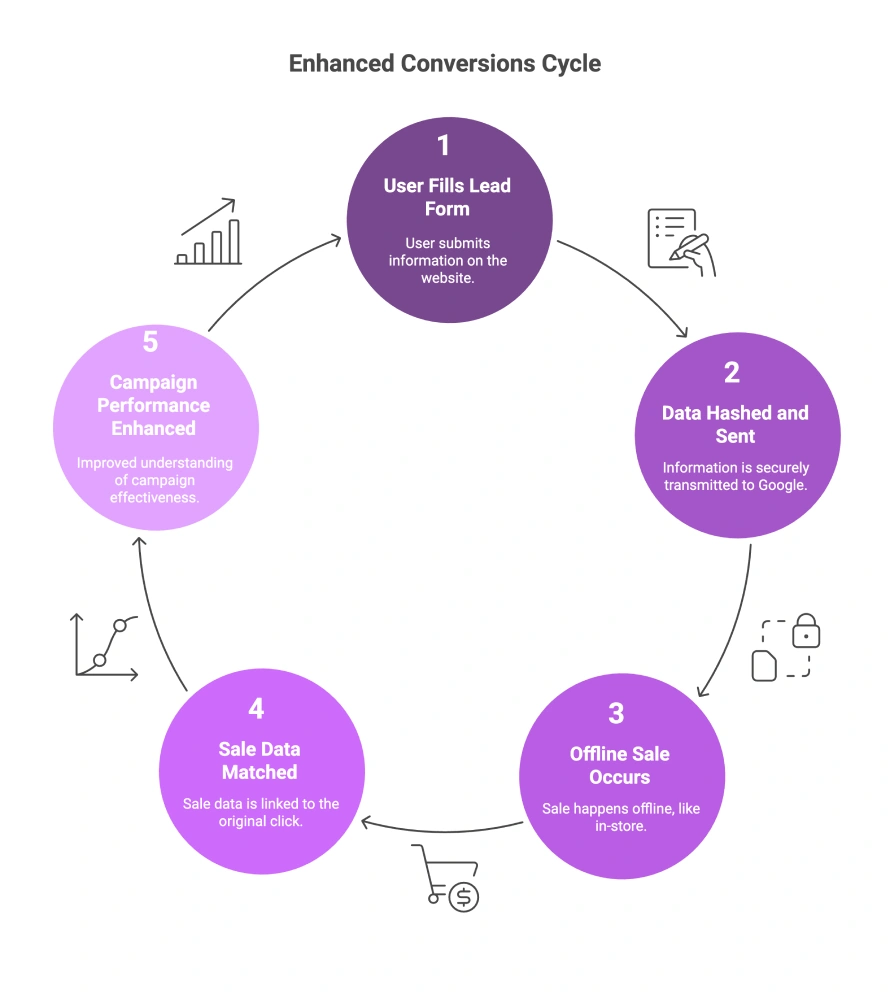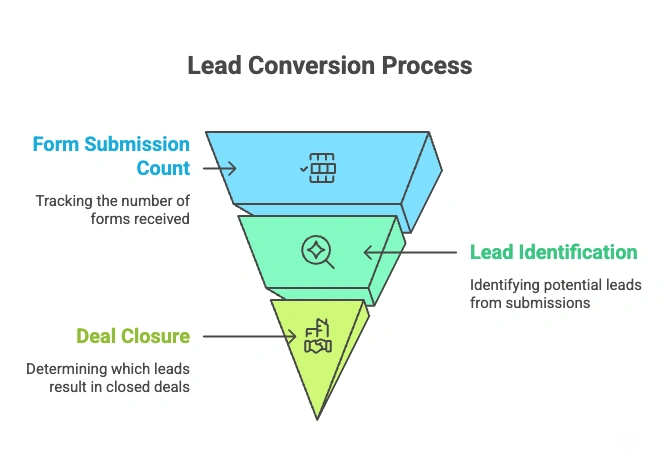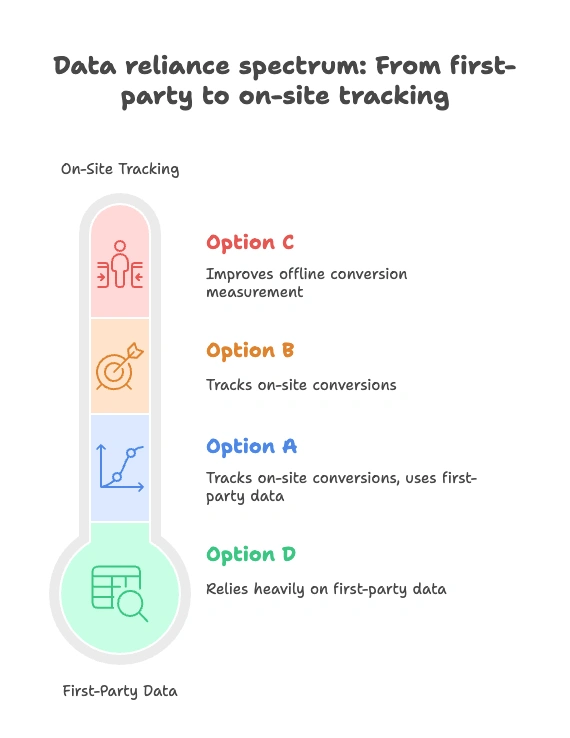If you’re preparing for the Google Ads Measurement Certification, here’s a tricky question many struggle with. This guide explains it clearly so you can pass the exam and learn how enhanced conversions for leads improve your campaign tracking. This question is important on the exam and shows how machine learning and data tracking work in real life. Many advertisers get leads online but close sales offline; enhanced conversions for leads help link these and improve ad decisions. Let’s go over the right answer and why the others don’t work. So, no delay, let’s get to the main point!
Question and Correct Answer
Question
Why might an advertiser use enhanced conversions for leads?
- A) To track sales and events that happen on a website
- B) To improve the measurement of online conversions
- C) To use third-party data to improve their offline lead measurement
- D) To track sales that happen off a website from website leads
The correct answer is
✅ D). To track sales that happen off a website from website leads
Why is option D the right answer?
Enhanced Conversions for Leads lets advertisers match offline conversions (like sales or calls) to the original online lead form submissions that happened on their website.

Here’s how it works:
- A user fills out a lead form on your site after clicking your ad.
- Their information (e.g., email or phone) is hashed and securely sent to Google.
- Later, when that lead results in a sale offline (in-store, via phone, etc.), that sale data is matched back to the original click using enhanced conversions.
Why are the other options incorrect?
🔻 Option A: To track sales/events that happen on a website
This describes standard conversions, not enhanced conversions for leads. Standard Google Ads tracking already captures on-site actions like purchases, sign-ups, etc.
🔻 Option B: To improve online conversion measurement
This is only partially correct. While enhanced conversions do improve measurement, this option misses the key element: offline sales from online leads.
🔻 Option C: To use third-party data
Enhanced conversions use first-party data (collected directly via lead forms), not third-party sources. This option misrepresents how the system works.
Real-life Example of Maria’s Mortgage leads
Maria runs Google Ads for a mortgage business. She generates leads via an online form (“Get Pre-Approved”).

Without Enhanced Conversions:
- She knows how many forms are submitted.
- But she doesn’t know which leads actually close deals.
With Enhanced Conversions for Leads:
- Google matches lead form submissions to offline sales data.
- Maria sees that 27% of leads from her Tuesday campaign closed within 14 days.
- She increases budget on high-performing segments—and cuts low performers.
Result: Smarter budget allocation and better cost-per-sale tracking.
Comparison
| Feature | Option A | Option B | Option C | Option D ✅ |
|---|---|---|---|---|
| Tracks on-site conversions | ✅ | ✅ | ❌ | ❌ |
| Improves offline conversion measurement | ❌ | ❌ | ❌ | ✅ |
| Uses lead form data | ❌ | ❌ | ❌ | ✅ |
| Relies on first-party data | ✅ | ✅ | ❌ | ✅ |

How Enhanced Conversions Work (Technically)
- User submits form with email/phone after clicking an ad.
- That data is hashed using SHA-256 encryption (to protect privacy).
- Google compares it to user data associated with ad clicks.
- Later, if the lead converts offline, that data is matched.
- Your Google Ads account reflects the full conversion path.
Helpful Resources
- Enhanced Conversions for Leads – Google Support
- How Google Uses Hashed First-Party Data
- Best Practices for Lead Tracking
Conclusion
If you’re running lead generation campaigns with sales happening offline, you should be using Enhanced Conversions for Leads. It gives you visibility into what’s actually working, not just who filled out a form, but who closed.
This makes Option D the only correct answer.
Finally, I can say that if you are ready, you can take the exam on Skillshop – Google Ads Measurement Certification. If you want more real exam questions and answers like this one, which have already been covered, follow along. I’ll be breaking down more Google Ads Measurement Certification exam questions with full solutions in the next posts on Google Ads!
FAQs
Q1: What kind of businesses benefit from enhanced conversions for leads?
Any business where leads close offline: real estate, healthcare, education, finance, B2B services, etc.
Q2: Is customer data safe?
Yes. All personal data is hashed client-side before being sent to Google, following industry-standard security.
Q3: Do I need a CRM integration?
While it’s optional, CRM integrations make it easier to send offline conversion data back to Google Ads.
Q4: How long does matching take?
Matches can occur within a few days, depending on the volume of conversions and sync frequency.
